As marketers, we know that a view-through-conversion is not the same as a click through conversion.
With view through conversions, the user may not have even consciously seen the advert before they returned to the website to convert.
Its possible they were already going to convert either way, ad impression or not.
But at least when the user clicks the ad and then converts, we know they both saw the advert and they used it as a shortcut to end up back at our website.
Google, to their credit, have always de-coupled view-through-conversions from click through conversions:
You might assume that Facebook would follow Google’s lead and not try to inflate their performance by counting Facebook view through conversions as conversions, but that isn’t the case.
Facebook uses the below attribution method to count conversions:
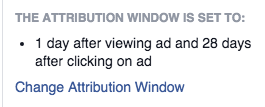
Fortunately, we can change this ourselves, and remove the view through conversions.
To do so, you’ll want to open Ads Manager and select ‘Customize Columns’
The next screen you’ll see looks like this:
From here you’ll want to select the attribution type that suits your campaign… I tend to go with the below:
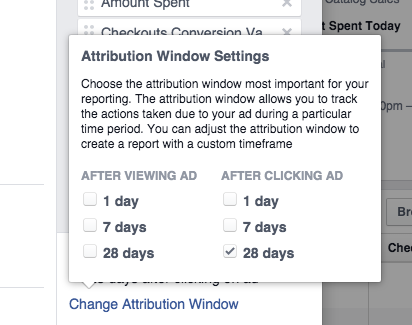
After hitting apply, you’ll get a more realistic (in my opinion) view of the campaigns performance. See below for how it affects this example:
What’s your experience with Facebook conversion attribution? Do you think Facebook view-through conversions should be measured separately?

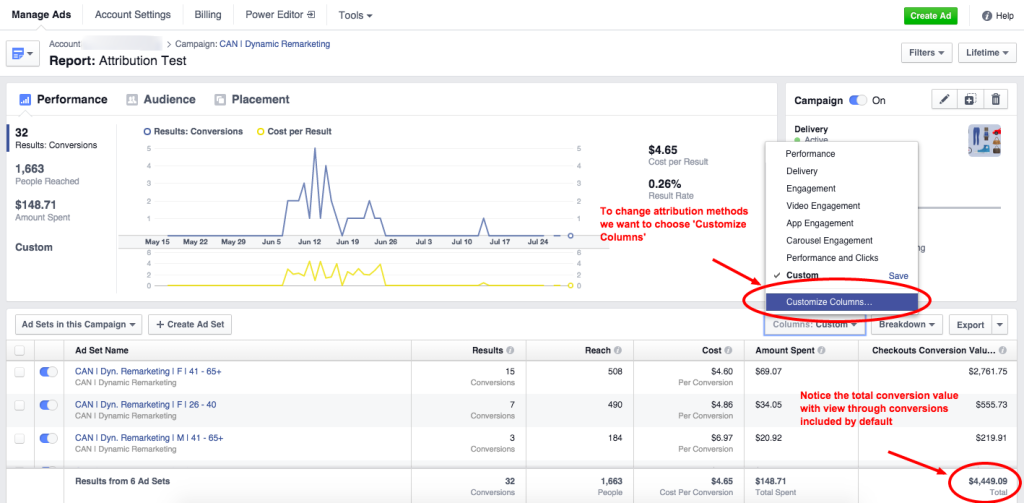
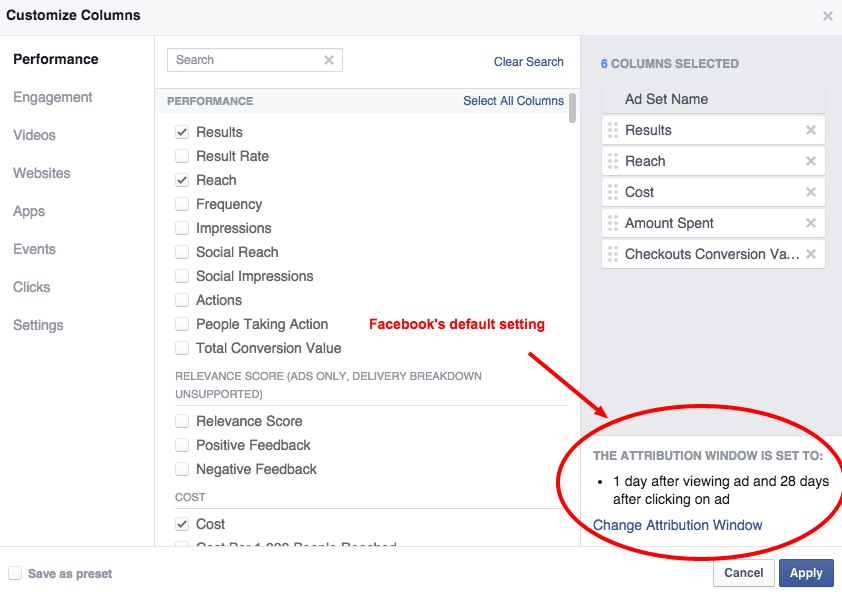
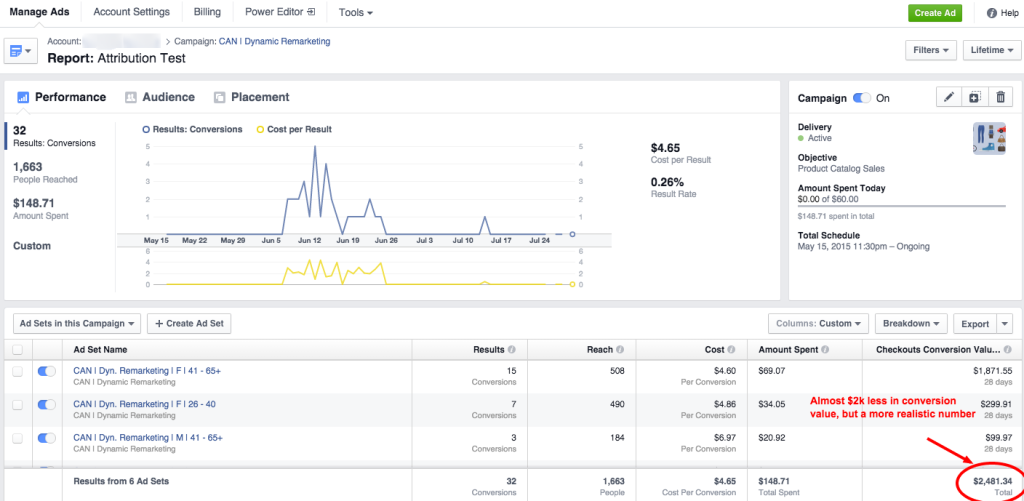
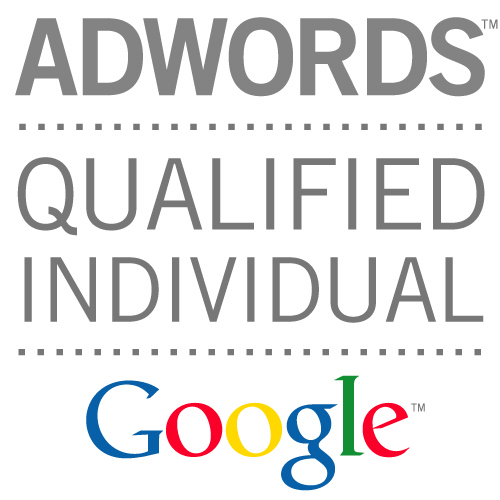

I was about to write a blog post on this subject. Really weird how hidden VTC and CTC are in Facebook. I didn’t even know you could separate them and I’ve been working on FB accts. for a long time. It’s humbling to realize something that’s been avail for so long and so valuable to me and clients has slid under the radar
Agree Tim. I would go as far as to say its immoral to group VTC & CTC under the same conversion value metric. But I suppose Facebook wanted to maximise how valuable people see their ads.
Glad it was of use!
@johnking5:disqus John, very helpful tutorial, to me it was clear how to change attribution model to not count view thru conversions. @andrew_race:disqus has some great additional input on the value of view through, but I think it’s up to each business/campaign to decide at the onset if they want to include that or not. Yes there’s value in view throughs but I think the main reason we do digital ads is being able to accurately measure, so that to me means optimizing for the post click conversion. Not using view through data to encourage more ad spend. my 2 cents.
The way you describe Facebook’s attribution isn’t correct (anymore?). I’m not sure if you were right at the original posting but if/when using the Facebook Pixel:
“If a customer clicked an ad, a conversion can only be attributed to the click. If that customer never clicked an ad, but still converted, a conversion can only be attributed to the view. Conversions cannot be simultaneously attributed to both.”
https://www.facebook.com/business/help/458681590974355
As a marketer, typically you want to report as much revenue is accurate to attribute to your campaigns and since Facebook does not duplicate conversion types, you are doing yourself a disservice by not reporting revenue that can in fact be attributed to someone seeing your ad. Regardless of clicking or not, exposure absolutely leads to purchase, TV and billboards have been doing it for years, granted attribution was the main issue with those channels, MANY brands and CMOs still value view-through conversions and IT ISN’T MISLEADING TO DO SO.
…in my humble opinion :-)
Hey Andrew, thanks for the comment.
I love when there’s some engagement on the posts.
I understand what you’re saying, but I’m not sure it negates the value of the above post.
If it does, great, I’m all for learning!
Is there another way to break down the purchase column in Facebook, so that you can see which purchases came from a click and which came from a view?
Hey John, I love discussing this too!
My comment is sort of disjointed, let me clarify:
1. What I think is incorrect in your post (original post might have been right at the time) is how Facebook “inflates” their performance by combining view-through and post-click conversions. The first part of my comment is addressing this, and I quote and link to Facebook showing specifically, “Conversions cannot be simultaneously attributed to both.” (Clicks & views).
2. This is where it gets fun and subjective :-)
Hi Andrew,
Know it’s been months but hoping to get a reply here. How would I segment out view through conversions and click through conversions in the interface, then? I can’t seem to figure it out, and it all does, as the author said, seem lumped together. Do I need to change the windows in the segment to only include the type of conversion I want?
A play-by-play would be much appreciated. Thanks!
Hey Lex,
Happy to help. I think you are on to it. What you do is go into “customize columns” and click “change attribution window” then you can choose to see conversions that happen within 1, 7, or 28 days after engagement. If you select all 3 at once then it breaks it down, if you choose only 28 days, it will show you all conversions in the last 28 days. If you don’t choose any view-through lookback, I am pretty sure it won’t count those at all. I might be wrong, but if someone never clicked an ad I don’t believe you will see a conversion in the interface if you haven’t selected a view-through lookback range. Screenshot attached, look in the lower right for attribution window.
https://uploads.disquscdn.com/images/f726e9ce87772205bed789abee5f0773091bc356242294d6ddd88390ca3ce63b.png
Things to keep in mind:
If a customer clicked an ad, a conversion can only be attributed to the click. If that customer never clicked an ad, but still converted, a conversion can only be attributed to the view. Conversions cannot be simultaneously attributed to both.
Clicks take precedence over views, even if the view happens after the click.
Conversions are attributed to the most recent ad someone clicked. If they didn’t click, it’s attributed to the most recent ad they saw.
Any events outside the maximum conversion window (28 days) are not considered.
Official page explaining it.
https://www.facebook.com/business/help/458681590974355
Let me know if you have any other questions :-)
Thank you!
Hi Andrew, I completely agree with what you are saying up there and valuing view through conversions for remarketing and even some dark.
I am really curious as to what you set your attribution window to for dark posts and for RMKT?
Also I am curious about FB double counting conversion value between campaigns. Ex. dark post and a RMKT campaign running. dark post clicks (doesn’t convert) then sees the RMKT ad or clicks and converts. Is the purchase conversion value attributed to both campaigns?
What’s a “dark post”?